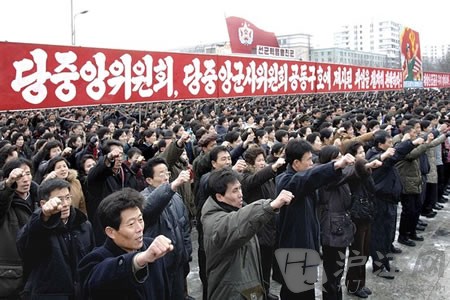|
|
惨不忍睹:朝鲜发布15年来人口报告(图) 朝鲜近日发布了自1993年以来的一次人口调查统计
朝鲜近日发布了自1993年以来的一次人口调查统计。根据这份调查报告,朝鲜人口总数有略微增长,但人口老化现象明显、人民健康水平下降;妇女难产死亡率及婴儿死亡率都有所升高;平均预期寿命降低…… 调查还从侧面显示了朝鲜国内的经济结构:从事农业生产的人数最多,其次是政府部门和军队职员,接下来是教育,再其次是工业……而外界一直以来估计的一百万军队数量,根据这份报告也只有不足70万人。 SEOUL-North Korea is getting bigger, older and less healthy, according to data from the country's latest census, and its fabled million-man army might have fewer than 700,000 people。 The authoritarian government in December released results of the census conducted in 2008, saying its population had climbed to 24 million people from 21.2 million in the previous census in 1993. More details have been published by the United Nations Population Fund, which helped North Korea conduct the census and sent five teams of observers to monitor it。 Even so, it's difficult for outsiders, with so little access to the country, to be certain of the precision of North Korea's data. For decades, the government has cut off the dissemination of most information about the country. The new census numbers provide a rare glimpse of official statistics。 The census reported that North Korea's population grew at an annual average rate of 0.85% for the 15-year period, a time that included a devastating multiyear famine that analysts and foreign aid agencies estimate killed between one million and two million people。 A separate U.N. report published last year found that North Korea's population has grown more slowly since 2005, at an annual rate of 0.4%. The global population has grown 1.2% annually since 2005, the U.N. report said。 North Korea's census said the country's population has proportionately fewer children and more middle-aged people than it did in 1993. It also reported that people are less healthy。 Babies are more likely to die: The infant mortality rate climbed to 19.3 per 1,000 children in 2008 from 14.1 in 1993, though North Korea's rate is still well below the world average, which a 2009 report by the U.N. agency put at 46 per 1,000 children。 North Koreans are living shorter lives-average life expectancy has fallen to 69.3 years from 72.7 in 1993. 网友评论
${图铃下载}
企业服务 |
||||||||||||||||



